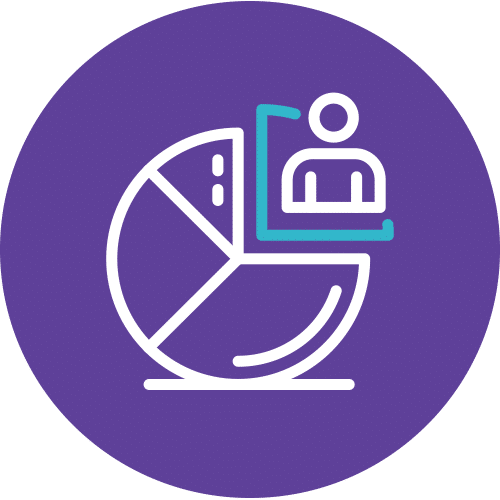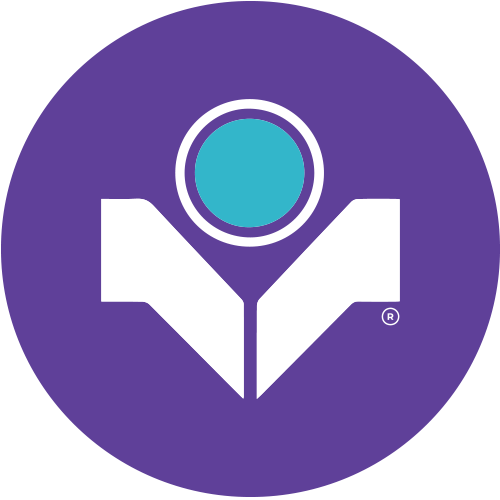Become a Professional Scrum Master
Are you prepared to take your career to the next level and become a Professional Scrum Master? Look no further than our intensive 2-day course dedicated to the Professional Scrum Master (PSM). This comprehensive program covers the principles and mechanics of the Scrum framework, equipping you with the skills needed to excel in the role of a Professional Scrum Master.
What to Expect from the Professional Scrum Master Course
In our Professional Scrum Master (PSM) course, we delve deeply into the principles, rules, and roles underpinning the Scrum framework. You’ll not only gain a solid understanding of the fundamentals but also acquire advanced tools for effective servant-leadership. These tools encompass behavioral shifts, team collaboration, coaching techniques, and organizational adaptability.
Our course combines instruction with interactive team-based exercises, challenging you to think critically and apply Scrum principles directly to real-world scenarios. This hands-on approach ensures that you not only grasp the theory but can also implement it effectively in your workplace.
Who Should Attend the Professional Scrum Master Course
The Professional Scrum Master (PSM) course is tailor-made for Scrum Masters, but its valuable lessons extend to anyone supporting software development team efficiency, effectiveness, and continuous improvement. This includes project managers, IT managers, technical leaders, solution architects, and even novices to the world of Scrum. Our aim is to empower professionals at all levels to thrive in the agile project management landscape.
If you’re eager to advance your career, lead high-performing teams, and drive innovation within your organization, then the Professional Scrum Master course is the ideal choice. Join us today and embark on your journey to becoming a certified Professional Scrum Master!
Course Details
Course Code: PSM; Duration: 2 Days; Instructor-led
The Professional Scrum Master (PSM) course is a 2-day course that covers the principles and (empirical) process theory underpinning the mechanics, rules and roles of the Scrum framework. Advanced tools for servant-leadership are provided to increase a Scrum Master’s effectiveness. These tools relate to behavioral shifts, working with people and teams, coaching and facilitation techniques, and addressing the organization.
Students learn through instruction and team-based exercises, and are challenged to think in terms of the Scrum principles to better understand what to do when returning to the workplace.
Scrum.org maintains the defined curriculum and materials for the Professional Scrum Master course and selects only the most qualified instructors to deliver this course. Each instructor brings his or her individual experiences and areas of expertise to bear, but all students learn the same core course content. This improves their ability to pass the Professional Scrum Master assessments and apply Scrum in their workplaces.
Audience
The Professional Scrum Master course is specifically targeted to Scrum Masters, but the lessons are applicable to anyone in a role that supports a software development team’s efficiency, effectiveness, and continual improvement. If you are a manager or a team leader responsible for the successful use and/or rollout of Scrum in a project or enterprise, this includes but not limited to project managers, IT managers, technical leaders and solution architects, this course is likely to be a good fit. Novices to Scrum are encouraged to attend this course.
Prerequisites
The Professional Scrum Master course is primarily targeted at Scrum Masters and those responsible for the successful use and/or rollout of Scrum in a project or enterprise.
Attendees will be able to make the most of the class if they:
- Have studied the Scrum Guide (required).
- Have passed Scrum Open Assessment.
- Understand the basics of project management.
- Understand requirements and requirements decomposition.
- Have been on or closely involved with a project that builds or enhances a product.
- Have read one of the Scrum books.
- Want to know more about how Scrum works, how to use it, and how to implement it in an organization.
Methodology
This program will be conducted with interactive lectures, PowerPoint presentation, discussion and practical exercise.
Course Objectives
Upon completion of this program, participants should be able to:
- Identify tools to lead and coach a self-organizing Scrum team in building high-quality software.
- Coach the development team to increase the team overall performance.
- Introduce, rollout and teach Scrum to team members, stakeholders and customers.
- Discover improvements for the current Scrum implementation in the organization.
- Plan and forecast a Scrum project to customers and stakeholders.
- Discover tactics and strategies to scale Scrum in large organization.
Outlines
Module 1: The Scrum Framework
Scrum theory includes time-boxing, and specific roles, rules, and artifacts. All elements of Scrum complement each other to form a consistent whole. All work is performed in Sprints. All base rules, events, and roles are described in the Scrum Guide, the acknowledged Scrum body of knowledge. Each part of Scrum ties back to the principles and theory.
Lessons:
- Scrum Events – Every events in Scrum is an inspect and adapt opportunity. How are these events important? What are the impacts of missing one of these?
- Scrum Role – Every role in Scrum has specific accountabilities. What are their accountabilities? Why are they important? How are they different to traditional project management roles?
- Scrum artefacts – Every artefacts in Scrum is transparent so organisation can inspect and adapt based on it. Why are these artefacts important?
- Sprint – The Sprint is the heartbeat of the Scrum framework. What is a Sprint? What are the criteria of a successful Sprint?
Hands-on Exercise:
- Students will experience the Scrum framework by building a small website in multiple Sprints.
- Students will collaborate with other students to define a process within the Scrum framework.
After completing this module, students will be able to:
- Explain why the artefacts, roles and events in Scrum are all important to a successful Scrum project.
- Discover suitable process within the Scrum framework for their organisation.
Module 2: Scrum Philosophy and Principles
Scrum is founded on empirical process theory to deal with the complexity typical to software development. All principles and values of Scrum are based on the fundamental view of software development as creative and complex work.
How is empirical approach different to defined approach? What makes Scrum different to traditional project management approach? What is Agile? How does Agile relates to Scrum? Why should we be Agile and use Scrum? In what case is Scrum not suitable?
Hands-on Exercise:
In this module students will learn:
- Create matrix for projects that is suitable for Scrum.
- Create impact analysis for businesses using Scrum.
After completing this module, students will be able to:
- Explain what is Agility and the relation to Scrum.
- Discover where Scrum is not suitable.
- Understand the impact of the transparency that Scrum brings and requires, and how Scrum is best used to increase an organization’s agility.
- Explain how Scrum implements empiricism in software development.
Module 3: Scrum Planning and Estimation
Lessons:
Scrum Planning is different to traditional project management. Student will exercise tactics on planning and estimation in Scrum.
This module will cover the followings:
- Product Backlog and Sprint Backlog – The Product Backlog and Sprint Backlog is the plan in Scrum. How is planning in Scrum different traditional project management? What is the best practice to do Lean Planning in Scrum? How to do Product Backlog Refinement?
- Product Backlog management – Product Backlog reflects the roadmap of the Product. How do we do Product Backlog management in Scrum?
- Product Backlog ordering – Prioritization is one way to order Product Backlog. What are the other techniques to order the Product Backlog?
- Product Backlog decomposition – Product Backlog is decomposed so that it can be done in one Sprint. How do we decompose Product Backlog to ready to execute Sprint Backlog?
- Scrum Estimation – Estimation is Scrum is different. How do we plan a Scrum project? What is Story Points? How do we use it to forecast a Scrum project? How do we track a Scrum project?
Hands-on Exercise:
- How to do Planning Poker to estimate Product Backlog Items.
- How to decompose a Product Backlog Items into smaller Product Backlog Items.
- How to decompose a Product Backlog Items into Sprint Backlog.
- How to plan a Sprint.
- How to forecast a release.
- Techniques in managing Product Backlog.
Module 4: Quality and Definition of Done
The criteria of success in Scrum are different to traditional project management.
This module will cover the followings:
- Definition of Done – Everyone in the organisation should have the same understanding about “DONE”. What is “DONE”? What is the impact of not having “DONE” software every Sprint?
- Quality – What is required for a high-quality software? Does Scrum need documentation?
Hands-on Exercise:
In this module students will learn:
- List techniques and documentation that is required for Scrum project.
After completing this module, students will be able to:
- Define what is required for high-quality software.
- Discover what documentation is required in Scrum.
Module 5: Cross-functional, Self-organizing Teams
Scrum Teams are self-organizing and cross-functional; which is very different from traditional development groups. Scrum Teams are empowered to do the right thing.
After completing this module, students will be able to:
- Discover what is required to generate a self-organising team.
- Get Scrum teams going, guide them along the way and help them continuously self-develop to become successful through better collaboration.
- Form a Scrum team.
Module 6: Coaching and Facilitation
Scrum Masters are servant-leaders, with skills and tools to coach teams and organizations in understanding and applying Scrum. They master several techniques for coaching, conversation, and facilitation in order to help people, teams, and organizations discover what works best for them.
After completing this module, students will be able to:
- Understand the people aspect of Scrum, how to work with people.
- Discover coaching techniques that is appropriate for the team.
Module 7: Scrum at Large and Scrum rollout
Scrum Masters can identify waste and scaling options within a team to increase the effectiveness of the team in delivering releasable software.
Scrum Masters can guide an organization in scaling to multiple Scrum Teams working on one software product and in aligning development on product lines or multiple interconnected products.
Hands-on Exercise:
In this module students will learn:
- Scaling techniques in an organisation.
- Strategy to roll out Scrum in an organisation.
After completing this module, students will be able to:
- Discover what is required to rollout Scrum in the organisation.
- Create a strategic plan to rollout Scrum in the organisation.
Module 8: The Scrum Master
This course put emphasize on one of the role in Scrum – the Scrum Masters. Scrum Masters are servant-leaders with distinct skills.
After completing this module, students will be able to:
- Identify who is the Scrum Master.
- Explain what makes Scrum Master different to traditional Project Manager.
- Discover skills and traits are required for Scrum Master to be successful in his role.
Module 9: Assessment And Certification
The Professional Scrum Master course has two associated assessments and certification: Professional Scrum Master level I (PSM I) and Professional Scrum Master level II (PSM II).
All participants completing the Professional Scrum Master course receive a password to take the PSM I assessment and are entitled to a discount on the PSM II assessment.
These industry-recognized certifications require a minimum passing score on the associated rigorous assessment.










